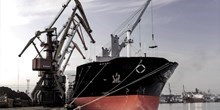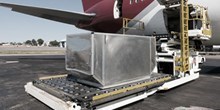With over 4,000 seaports across the globe, ports remain attractive targets for terrorist organizations; a strike on a large port facility could cripple a nation’s economy, impact world stock markets and cause significant casualties and environmental damage.
This, together with a growing volume of freight and traffic, means that there is an increasing demand for astute, specialist security services. The challenge facing port operators is to find the optimal security plan that not only matches budget and operational requirements but also complies with the International Ship and Port Facility Security Code (ISPS Code) and other regulatory requirements.
ICTS' services include:
- Operations Setup: recruitment and training of operational staff, writing manuals and security plans, developing procedures
- Port and Ship Security Assessments: vulnerability assessments, security surveys and advice on counter-measures
- Financial Arrangements, including provision of equipment on lease
- Screening of people and their personal effects: cruise ship passengers, crew and visitors, and at entry to port facilities when required; use of hand search, metal detectors and X-ray machines, including advanced techniques such as Threat Image Projection
- Landside and Seaward Protection for ships and port facilities, including counter-piracy advice, measures and equipment
- Monitoring of CCTV and Intruder Detection Systems (e.g., Smart Fence): security patrolling, with guard dogs if required
- Manning of access control points to port facilities
- Vehicle screen/search on entry to port facilities: screening of freight, stores and vehicles using ICTS Europe's unique RASCargO™ product, for ship's stores, cargo containers and lorries, coaches and cars on ferries
- Emergency Planning, including crisis management and business continuity
- Vehicle screen/search on entry to port facilities: screening of freight, stores and vehicles using ICTS Europe's unique RASCargO™ product, for ship's stores, cargo containers and lorries, coaches and cars on ferries
- Emergency Planning, including crisis management and business continuity

























